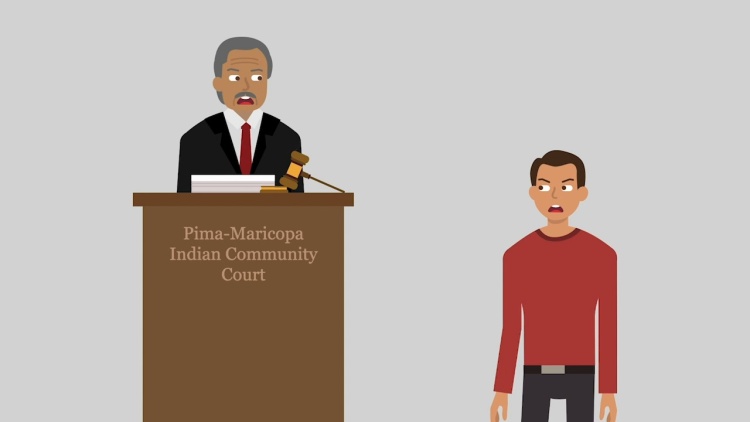Duro v. Reina
United States Supreme Court
495 U.S. 676 (1990)
- Written by Angela Patrick, JD
Facts
Albert Duro (defendant) was a member of the Torres-Martinez Band of Cahuilla Mission Indians. Duro lived with his girlfriend on the land of a different tribe, the Pima-Maricopa tribe. In 1984, Duro shot and killed a boy on Pima-Maricopa land. The boy was Indian but was not a member of either the Cahuilla or Pima-Maricopa tribe. Duro was initially charged with murder in federal court, but the charges were dismissed. Duro was then placed in the custody of the Pima-Maricopa tribe. The Pima-Maricopa tribe’s criminal code was limited to misdemeanors. Therefore, in the tribal court, Duro was charged with illegally firing a weapon on reservation land. Duro moved to dismiss the charges on the basis that the Pima-Maricopa courts did not have jurisdiction over him. The Pima-Maricopa tribal court denied the motion. Duro then filed a petition for a writ of habeas corpus with the United States District Court for the District of Arizona. The district court ruled that the Pima-Maricopa tribal court lacked jurisdiction over Duro and granted the writ. However, the United States Court of Appeals for the Ninth Circuit found that the Pima-Maricopa court did have jurisdiction over Duro and reversed. The United States Supreme Court granted certiorari.
Rule of Law
Issue
Holding and Reasoning (Kennedy, J.)
Dissent (Brennan, J.)
What to do next…
Here's why 907,000 law students have relied on our case briefs:
- Written by law professors and practitioners, not other law students. 47,100 briefs, keyed to 996 casebooks. Top-notch customer support.
- The right amount of information, includes the facts, issues, rule of law, holding and reasoning, and any concurrences and dissents.
- Access in your classes, works on your mobile and tablet. Massive library of related video lessons and high quality multiple-choice questions.
- Easy to use, uniform format for every case brief. Written in plain English, not in legalese. Our briefs summarize and simplify; they don’t just repeat the court’s language.








